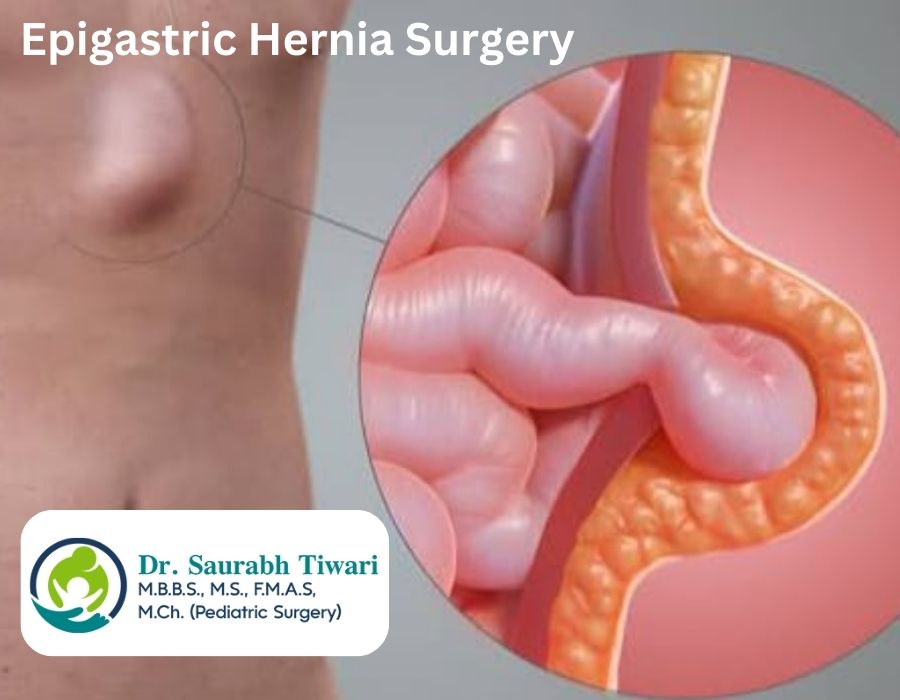Introduction
Epigastric hernias are a relatively common medical condition that occurs when fatty tissue pushes through the abdominal muscles, causing a noticeable bulge in the upper abdomen. While not as well-known as other types of hernias, like inguinal or umbilical hernias, they can still cause discomfort and require medical attention. One common question that arises when discussing epigastric hernias is whether the surgical repair of such hernias is considered a major procedure. In this blog, we will explore the nature of epigastric hernia surgery and its categorization as a major or minor surgery.
Understanding Epigastric Hernia Surgery
Epigastric hernia surgery is a medical procedure designed to repair the weakened or torn abdominal muscles that allow fatty tissue to protrude through. This condition typically occurs in the upper midline of the abdomen, between the breastbone and the navel. During the surgery, the surgeon makes an incision near the hernia site, repositions the herniated tissue, and then repairs the weakened abdominal muscles using sutures or a mesh to provide additional support.
Is it a Major Surgery?
The classification of surgery as major or minor can depend on various factors, including the complexity of the procedure, the need for general anesthesia, and the potential risks involved. Epigastric hernia surgery is generally considered a minor surgery for several reasons:
- Local Anesthesia: Epigastric hernia repairs are typically performed under local anesthesia, which means the patient remains conscious during the procedure. Major surgeries, on the other hand, usually require general anesthesia, which carries a higher level of risk.
- Duration: Epigastric hernia surgery is relatively quick and can often be completed within an hour or less. Major surgeries tend to be longer and more complex.
- Minimal Hospital Stay: Patients undergoing epigastric hernia surgery typically spend a short time in the hospital, often going home the same day or within 24 hours. Major surgeries usually involve longer hospital stays.
- Low Complication Rate: The risk of complications during or after epigastric hernia surgery is relatively low when compared to major surgeries, which may have a higher likelihood of complications.
- Low Impact on Daily Life: Recovery from epigastric hernia surgery is typically quick, with patients resuming normal activities within a few weeks. Major surgeries may require a more extended recovery period and have a more significant impact on daily life.
Conclusion
In conclusion, epigastric hernia surgery is generally classified as a minor surgical procedure. It is characterized by its use of local anesthesia, short duration, minimal hospital stay, low complication rate, and limited impact on daily life during the recovery process. However, it’s essential to remember that the classification of surgery as major or minor can vary depending on individual factors, and what might be considered minor for one person could be more significant for another.
If you or a loved one is facing an epigastric hernia and require surgery, it’s crucial to consult with a skilled surgeon like Dr. Saurabh Tiwari, who specializes in pediatric, neonatal, and laparoscopic surgeries. Dr. Saurabh Tiwari’s expertise ensures that you receive the appropriate care and guidance throughout the entire surgical process, making your journey towards recovery as smooth as possible. Always consult with a medical professional to determine the most suitable approach for your specific condition.




